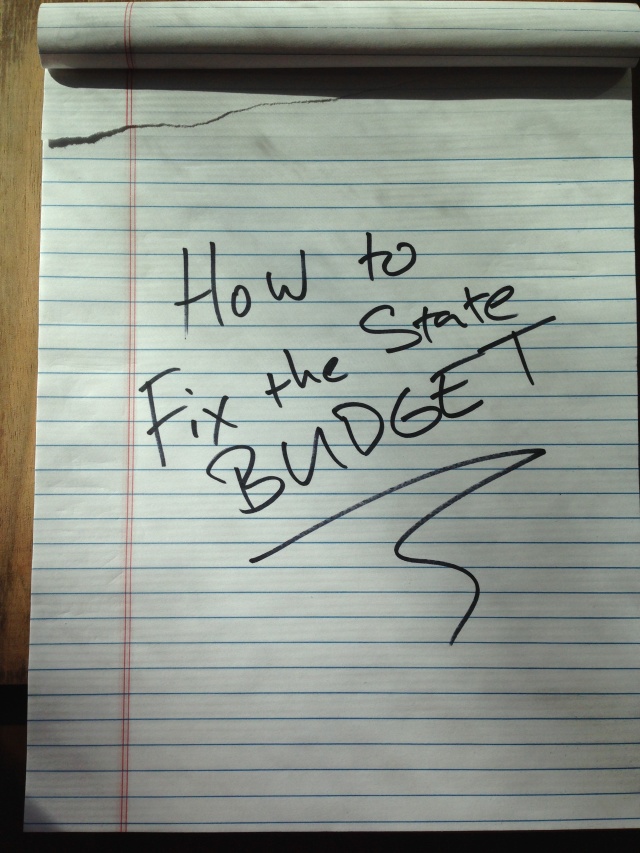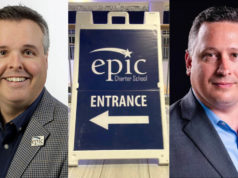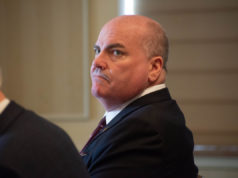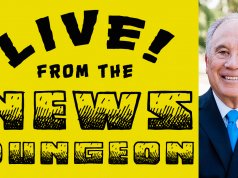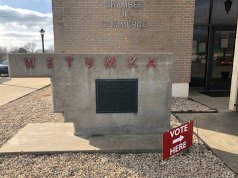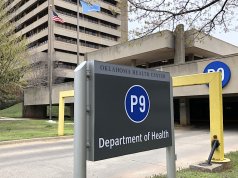
The theme of the Oklahoma Policy Institute’s third annual State Budget Summit could have been the exhortation by the institute’s outreach and advocacy specialist, Kara Joy McKee, who urged the audience, “Feel the fear, but do it anyway.”
The institute pulled no punches in documenting Oklahoma’s “full-fledged budget emergency.”
After adjusting for inflation, the state’s current budget is nearly $900 million, or more than 11 percent below 2009, when Oklahoma was mired in the Great Recession. A mid-year revenue failure has already been declared, forcing most agencies to make deeper cuts, and a second round of mid-year cuts may be coming. Legislators are expected to have $901 million less for next year, and the shortfall could be even greater.
In other words, as the institute’s Gene Perry explains, Oklahoma is a close cousin to Kansas, which dug itself into a financial catastrophe when making extreme tax cuts. Worse, two experts from the Kansas Center for Economic Growth, Annie McKay and Duanne Goosen, explained that the damage Kansas inflicted upon itself won’t be undone “for a generation.” The Oklahoma City audience was taken aback when it was told that Kansas has even addressed its shortfall by imposing enrollment fees for attending public schools.
No-brainers
OPI embodies the wisdom of House Minority Leader Scott Inman (D-Del City), who urges advocates to speak with precision when communicating with legislators. To that end, the institute formulates a pragmatic five-part proposal to address the budget crisis:
- Repeal the most recent income tax cut
- Adopt combined corporate reporting
- End the double deduction of state income taxes
- Improve collection of taxes owed on online purchases
- Accept federal funds for health care
I certainly hope that OPI (and others who seek to reform our system) have success in raising the consciousness of legislators on policies two through four. Their first and last proposals, however, should be no-brainers.
Repeated income tax cuts since the mid-2000s have reduced state revenue by more than $1 billion annually. According to the institute, when the Legislature made the last cut, it “never intended for it to take effect” in a situation like today as “revenues were falling and the state was experiencing a revenue failure.” Similarly, it makes no sense to reject federal funds to expand health care coverage to low-income adults.
State Auditor Gary Jones weighs in on budget crisis
OPI is a nonpartisan organization that welcomes speakers from both sides of the aisle. The single best benefit of the institute’s openness, for me at least, is that it provides a venue for Republican State Auditor Gary Jones. Jones got into the budgetary weeds with anecdotes that explain how games are played with metrics that hide some of the real harm of the cutbacks. He also puts the problem in a wider perspective, noting the rise of “dark money” and how corporate influence has unduly swayed Oklahoma’s governance. (The only downside was that the late Republican Rep. David Dank was no longer around to share his wisdom with us.)
Although he is open to the full range of serious proposals for tackling Oklahoma’s crisis, OPI’s executive director David Blatt also offered reality checks for Republican “band-aids.” For instance, if the latest panacea (the consolidation of school districts) was implemented fully, so that we were like Hawaii and only had one school system, some money would be saved. Blatt then brought down the house with his conclusion, “Those savings would bring us from 49th to 49th in the nation in funding our students!”
Cautious optimism
I left OPI’s session with cautious optimism. They made the case that we must concentrate on offering precise and pragmatic proposals to dig the state out of our fiscal mess. Later, we must raise our horizons, learn the lessons of the recent budgetary irresponsibility, articulate a higher vision for our state and fund a social and economic policy worthy of a 21st-Century democracy.
As the adrenalin stimulated by the budget summit returned to normal, I then had to deal with the New York Times’ assessment of Oklahoma’s refusal to accept federal health care dollars. They stressed the power of ideology over practicalities. Oklahoma won’t accept federal dollars, it predicted, because, as former Gov. David Walters said, “‘Obamacare’ is a cuss word.” Walters then explained that we have no problem “begging” for federal money after an ice storm or a tornado, but “it’s just the Obamacare dollars that are radioactive.”
So, I also must admit to feeling greater trepidation, even after hearing thoughtful ways to proceed at the budget summit. Other than canceling my subscription to the New York Times, however, I can think of no other way to allay those fears about Oklahoma’s budget crisis except by listening to, and acting on, OPI’s wisdom.









